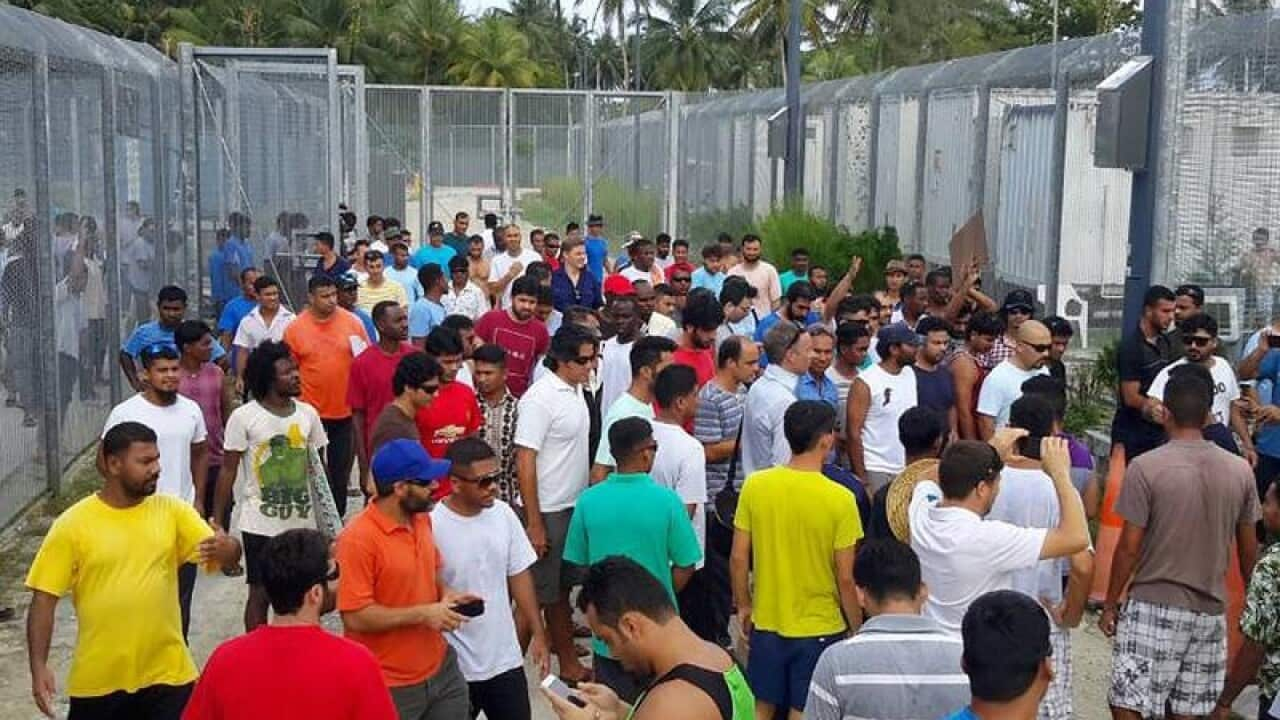All remaining refugees and asylum seekers at the mothballed Manus Island detention facility have been moved out, ending a tense three-week stand-off.
Immigration Minister Peter Dutton on Friday confirmed the 300-odd men who had refused to leave the centre are now in alternative accommodation.
"The Australian government welcomes this development," he said in a statement on Friday morning.
He later held a press conference where he slammed advocates for providing "false hope" to ex-detainees.
"You have compounded their problems by allowing them some message of false hope that somehow if they stayed in the regional processing centre in those conditions, it would twist the arm of the Australian government that we would change our policy and somehow the people would settle in Australia," he said.
"That cruel hoax needs to come to an end. The Labor Party and the Greens and these advocates have been holding out this cruel hoax and providing this false promise to people in a very difficult situation."
Papua New Guinea police and immigration officers carrying batons entered the centre on Friday morning to complete the task of clearing it, three weeks after it was officially closed.
Video footage shows local police hitting and threatening refugees and photographs appeared to confirm injuries.
The UN High Commission for Refugees also received reports of force being used.
However, PNG police said no one was forced or handcuffed.
The centre, set up by Australia to process asylum seeker boat arrivals, was officially closed on October 31.
However, the men refused to leave, saying the new facilities were unsafe and lacked proper health services.
Mr Dutton accused advocates in Australia of making inaccurate and exaggerated claims of violence and injuries on Manus.
He believes only three people suffered "minor" injuries - one with an insect bite, another who tripped and grazed himself while running from the centre, and a third suffering from dehydration.
Allegations of violence do not add up to the facts on the ground, he said, adding that he would like to see any footage proving otherwise.
"There are lots of claims made on social media. There are clips taken but a lot of this doesn't add up to the facts on the ground," he said.
The government has been told that some equipment at the alternative centres has been "sabotaged" - including backup generators and water infrastructure.
But it's unclear who did the damage.
"People have complained about the living conditions within the regional processing centre because they trashed the place and we've provided a new $10 million facility for people to move into," Mr Dutton said.
"We didn't trash the accommodation. We turned the water and power off with six months notice and asked them to move from that centre into the new centre and all of this is designed by way of trying to twist the Government's arm which is just not going to happen."
World Vision chief advocate Tim Costello, who is on Manus Island, said a number of those taken by bus to the new camps were covered in bruises and scratches and suffering from malnutrition.
At least one of the three alternative centres remained a construction site, he said, with machinery, tractors, concrete mixers and open drains still there.
"If you were an Australian builder you wouldn't let a civilian onto it, let alone move in," he told AAP.
"It's not over. The problem hasn't changed - it's just moved a few kilometres and it's still Australia's responsibility."
He suggested Malcolm Turnbull appoint a special envoy to be an "honest broker" with PNG authorities and New Zealand about their offer to resettle 150 refugees, and the possibility of a visa to stop them from coming to Australia.
Labor says the 24-day stand-off could have been avoided if the government had managed the situation properly from the start.
Opposition immigration spokesman Shayne Neumann said the prime minister must now ensure the asylum seekers and refugees are kept safe and secure.
"Turnbull has a moral obligation to ensure refugees have access to essential services at the alternative accommodation including food, water, security, health and welfare services," he said.
The Australian Human Rights Commission also urged the government and PNG to ensure effective protection of the men.
"Australia and Papua New Guinea must honour their international human rights obligations and ensure that these people are being housed in a humane and safe environment," president Rosalind Croucher said.
The commission noted that many of the men had complex mental and physical health needs and needed care.
-With AAP



